What are Kubernetes CI/CD services?
Kubernetes CI/CD services, typically offered in a cloud-provisioned or Software as a Service (SaaS) model, automate the Continuous Integration and Delivery of applications within Kubernetes clusters. These services build, test, and deploy applications efficiently, using Kubernetes’ orchestration capabilities.
This process involves integrating changes into the main branch frequently and automatically deploying them to various environments, ensuring rapid iteration and quick feedback loops. The automation of these steps reduces errors and speeds up the development lifecycle.
By managing deployments within Kubernetes, these services help maintain application consistency and reliability. Given Kubernetes’ inherent scalability, CI/CD services tailored for it can handle a large number of applications simultaneously. This is vital for modern development environments, where microservices and containerized architectures are prevalent.
Benefits of running Kubernetes CI/CD in the cloud
Running Kubernetes CI/CD in the cloud provides flexibility, scalability, and efficiency for software delivery. Cloud-based CI/CD services eliminate the need for on-premises infrastructure, reducing operational overhead and enabling teams to focus on development rather than maintenance.
Kubernetes CI/CD services integrate with cloud-native tools, improving automation and reliability. Key benefits include:
- Scalability: Cloud CI/CD platforms scale resources dynamically based on workload demands, ensuring efficient builds and deployments.
- High availability: Cloud providers offer distributed infrastructure, reducing downtime risks and ensuring reliable CI/CD pipelines.
- Faster build and deployment times: Using cloud computing resources accelerates build, test, and deployment cycles.
- Cost efficiency: Pay-as-you-go pricing models eliminate the need for upfront hardware investments and reduce infrastructure costs.
- Security and compliance: Cloud CI/CD services provide built-in security features, automated compliance checks, and encrypted data transfers.
- Integration: Native support for cloud services, Kubernetes clusters, and third-party DevOps tools simplifies the development process.
Related content: Read our guide to Kubernetes CI/CD tools
Popular kubernetes CI/CD services
1. Octopus
Octopus Deploy is a Continuous Delivery (CD) solution built to handle complex software delivery scenarios. It combines robust release management, automated deployment pipelines, and operational runbook execution to address the sophisticated scaling, architectural complexity, and regulatory governance demands of global enterprises with challenging deployment requirements.
Key Octopus features:
- Deployment consistency and safety: Octopus standardizes deployment workflows across all environments, delivering production releases with the same reliability and predictability as lower-environment deployments. Native rollback functionality ensures rapid restoration to stable application states.
- Scalable multi-customer deployments: Uniquely offering built-in multi-tenancy capabilities, Octopus manages deployment distribution from small customer bases to enterprise-scale tenant networks without requiring duplicated processes or administrative overhead.
- Comprehensive operations automation: Runbook functionality streamlines both routine operational tasks and critical incident response workflows, empowering development teams to concentrate on core development while enabling controlled self-service access for operations teams.
- Regulatory and audit readiness: Comprehensive activity logging, fine-grained access controls, and enterprise SSO support create seamless compliance workflows that satisfy audit requirements while establishing clear accountability and organizational confidence.
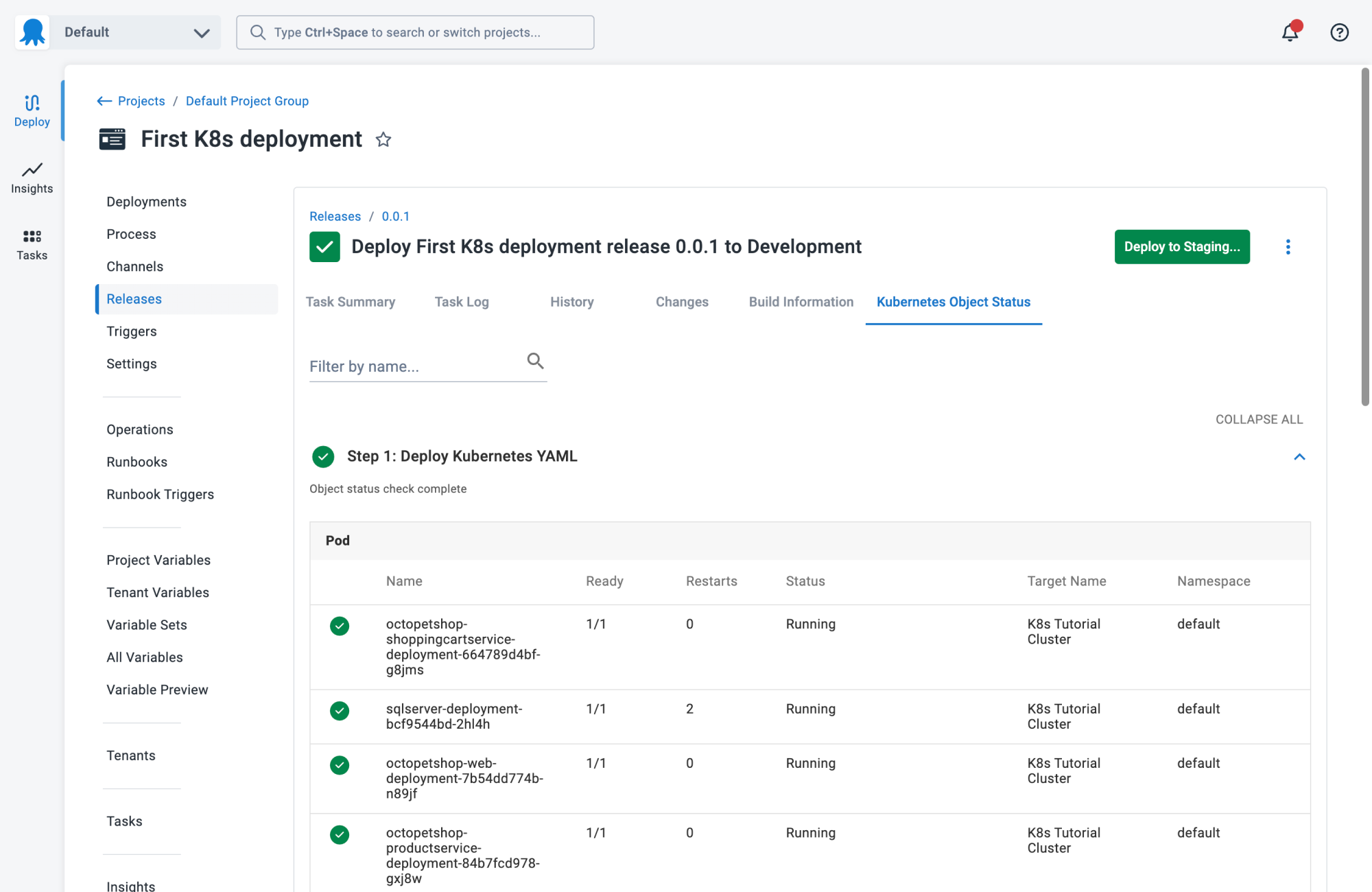
2. Codefresh
Codefresh is a CI/CD platform for Kubernetes, offering automation and optimization for software delivery. Built on Argo, it enables GitOps workflows for consistent and automated deployments. The platform emphasizes high performance with caching, parallel execution, and pipeline visibility.
Key features include:
- Optimized build performance: Implements caching and parallel execution to speed up CI/CD processes.
- Automated rollbacks & progressive deployment: Provides rollback capabilities and supports deployment strategies like canary and blue-green rollouts.
- GitOps-centric workflows: Uses Argo to enable declarative, automated deployments, ensuring reliability and traceability.
- Comprehensive observability: Delivers full visibility from build to deployment, aiding in monitoring and troubleshooting.
- Scalable & reusable pipelines: Supports pipeline inheritance, templates, and reusable triggers, promoting the DRY (don’t repeat yourself) principle.
![]()
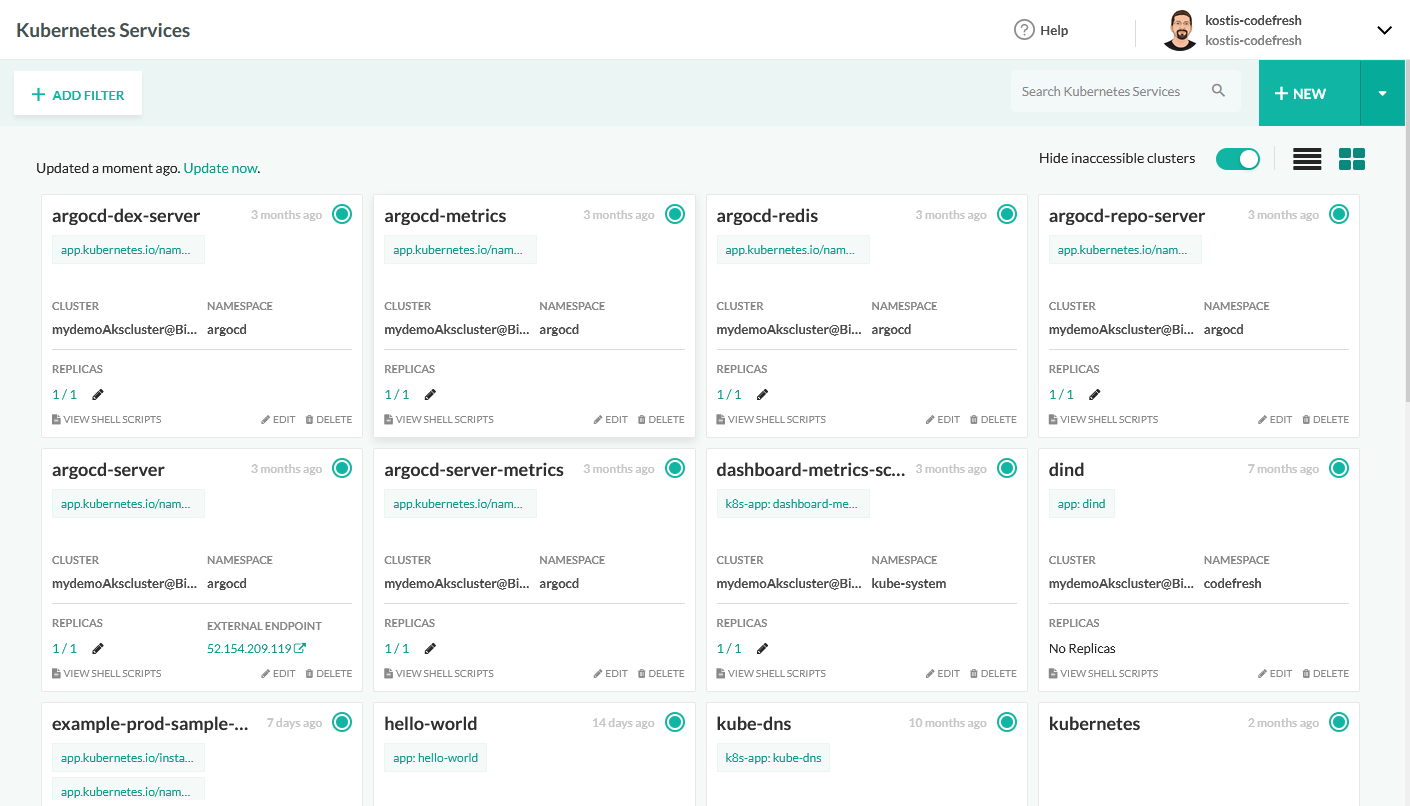
Source: Codefresh
3. GitLab CI/CD
GitLab CI/CD is an integrated automation solution that simplifies software development by managing builds, testing, and deployments. Designed for Continuous Integration and Delivery (CI/CD), it enables teams to release stable software.
Key features include:
- Automated pipelines: Supports both prebuilt and custom CI/CD pipelines for integration, testing, and deployment.
- Pipeline catalog: Offers pre-configured components to improve efficiency and standardization across development teams.
- Merge trains & parent-child pipelines: Keeps the main branch stable by organizing complex workflows into smaller, more manageable units.
- Integrated security & compliance: Incorporates security scanning (SAST, vulnerability detection, compliance enforcement) within the pipeline for early issue detection.
- Progressive delivery: Enables controlled rollouts using feature flags and canary deployments for safer software releases.
![]()
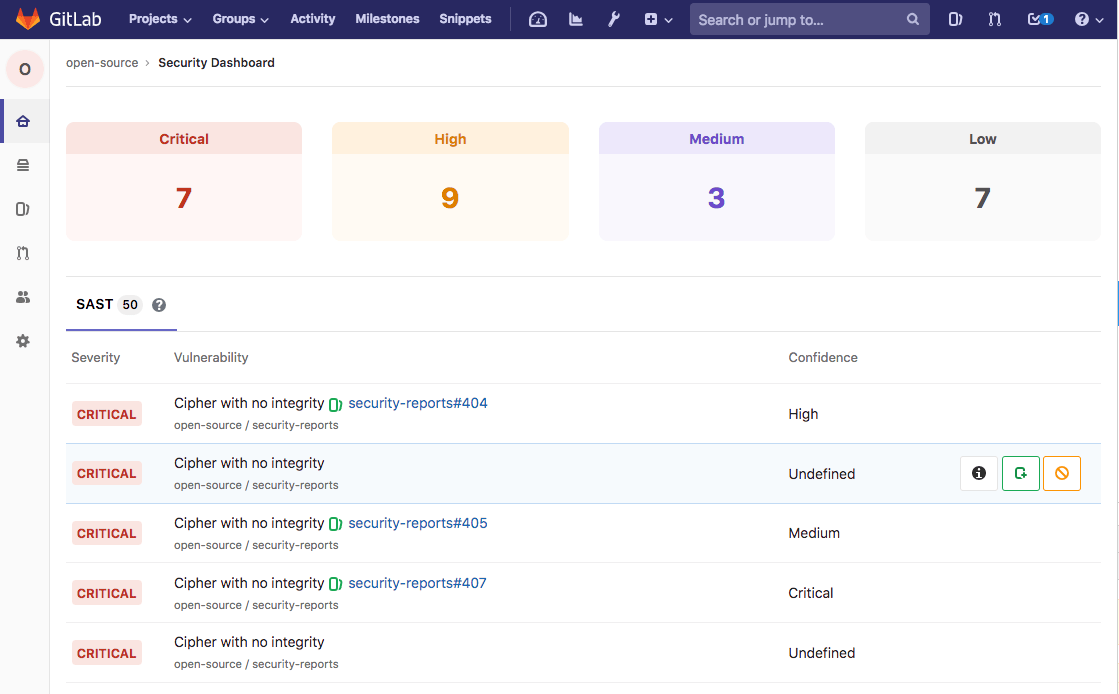
Source: Gitlab
4. CloudBees CI
CloudBees CI is an enterprise-focused CI/CD solution to optimize and scale Jenkins environments. It enables organizations to manage Jenkins infrastructure while enforcing governance and security policies.
Key features include:
- Enterprise Jenkins management: Provides tools for managing Jenkins at scale, allowing administrators to control resources, plugins, and configurations.
- Governance and compliance: Offers governance features to enforce security, compliance, and audit requirements across CI/CD pipelines.
- Scalability and performance: Enables scaling of Jenkins controllers and agents to support growing workloads and distributed teams.
- Automated workflows: Simplifies software delivery by automating CI processes and integrating CI best practices.
- Expert support and monitoring: Includes enterprise-level support and tools like the Jenkins Health Advisor for monitoring, issue detection, and performance optimization.
![]()
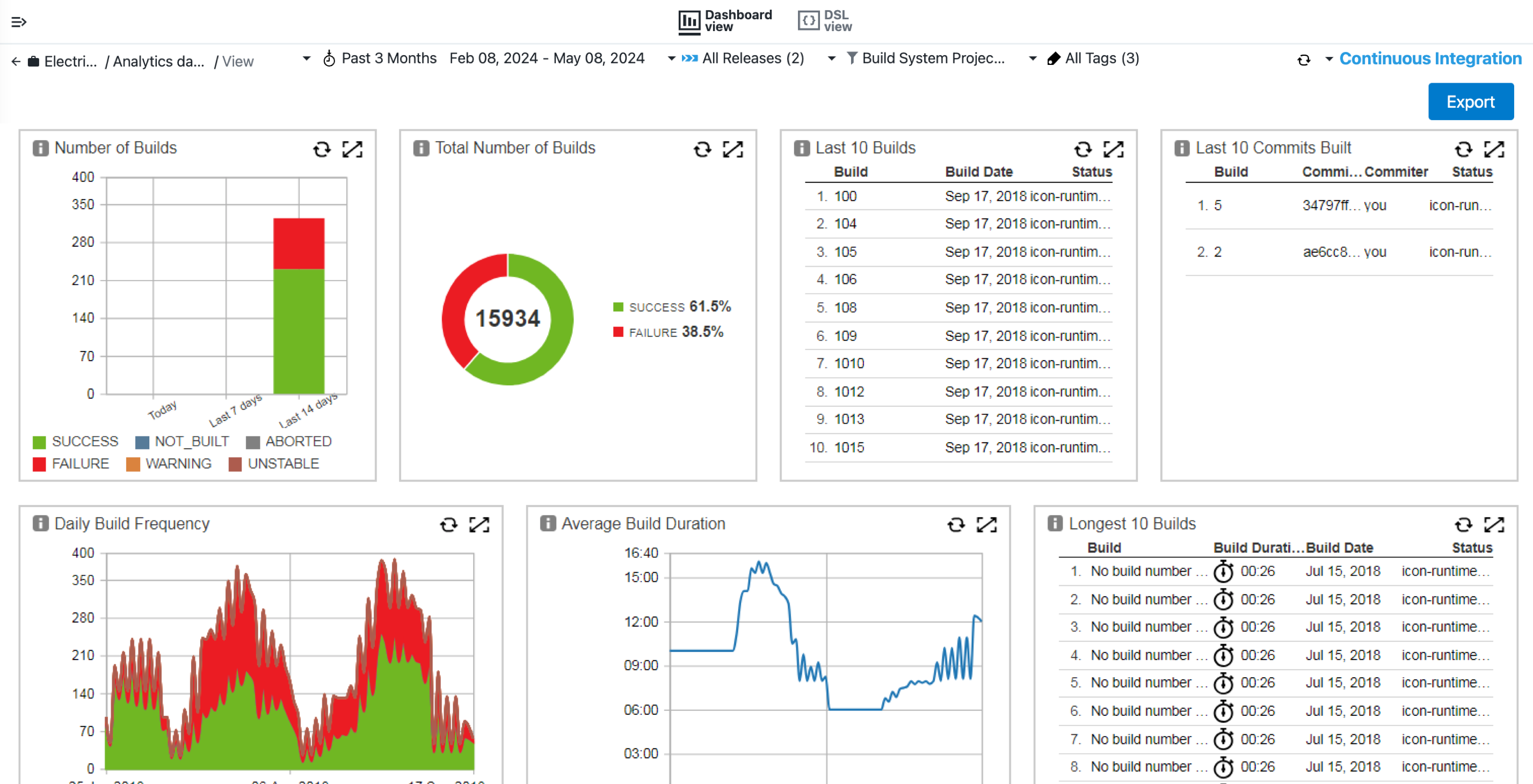
Source: CloudBees
5. Travis CI
Travis CI is a cloud-based CI/CD platform to simplify and accelerate software testing and deployment. It reduces complexity and allows developers to focus on writing and testing code rather than managing build environments. Supporting multiple languages and platforms, Travis CI is often used by small to mid-sized teams.
Key features include:
- Simplified configuration: Uses a lightweight, human-readable .travis.yml file to define pipelines.
- Build matrix & parallel execution: Runs tests across different environments, operating systems, and runtime versions simultaneously.
- Continuous analysis & automated deployments: Triggers builds on every code change, providing automatic deployments for passing builds.
- Secure & isolated builds: Executes builds in new VMs and containers to prevent interference and protect secrets, with support for HashiCorp Vault encryption.
- Multi-language & multi-platform support: Supports multiple languages, including Python, Go, Java, and Node.js, with preconfigured environments.
![]()
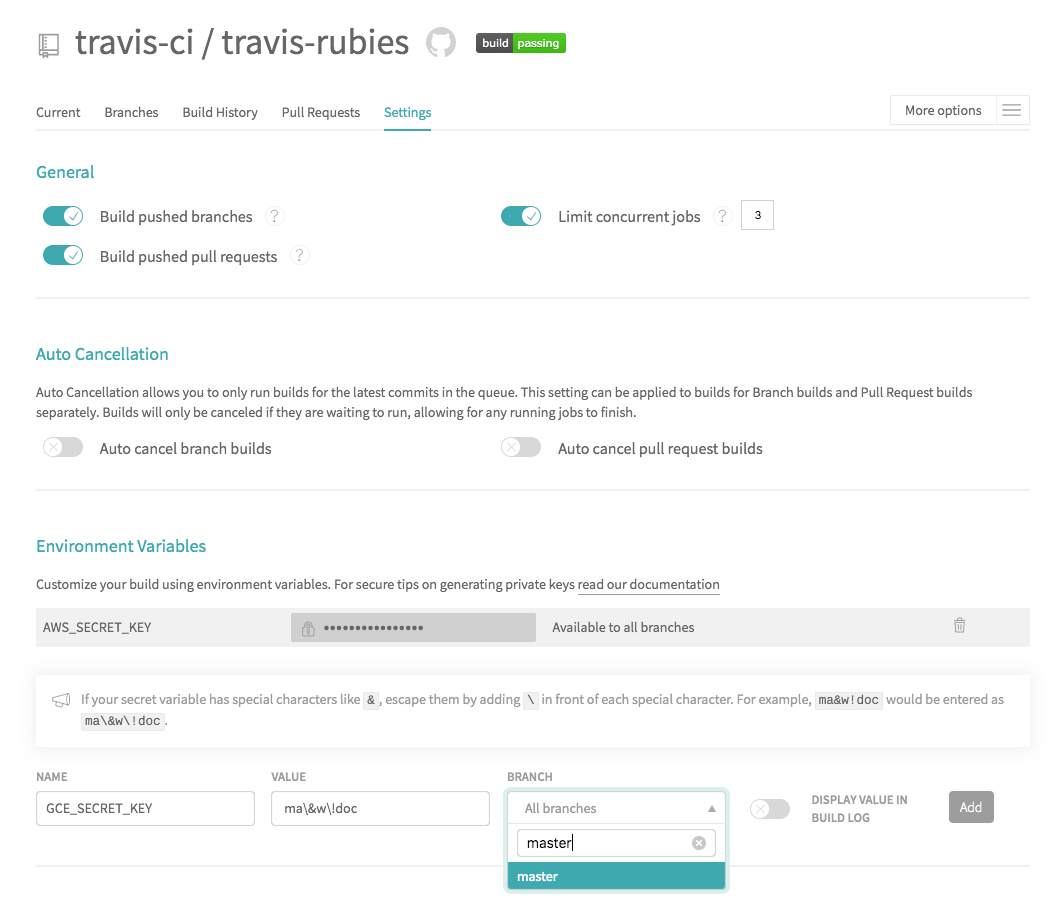
Source: Travis CI
Conclusion
Kubernetes CI/CD services simplify software delivery by automating build, test, and deployment processes within Kubernetes environments. By using cloud-native technologies and GitOps principles, these solutions improve scalability, reliability, and operational efficiency. Automating CI/CD pipelines in Kubernetes enables faster iterations, reduces human errors, and ensures consistent deployments across multiple environments.
Help us continuously improve
Please let us know if you have any feedback about this page.